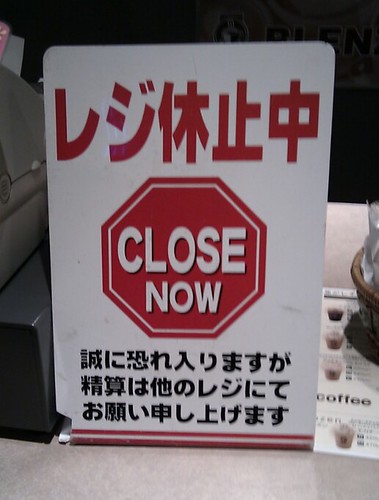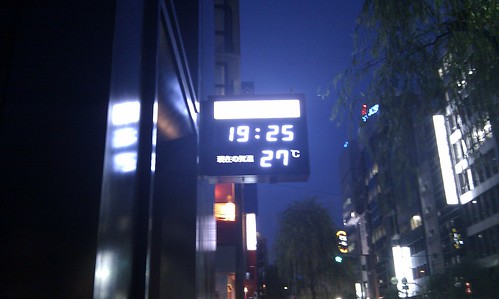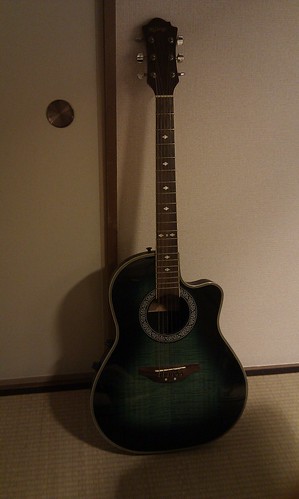
Today in class we did a review of 'used to do' and 'be used to doing.' They are very similar in form but very different in meaning and usage. Let's do a quick review on it again.
I
used to (verb) means I did it regularly in the past but no longer do it. For example,
I
used to live in San Francisco (that's before but now I live in another place)
I
used to play basketball with my friends on the weekends but I don't do so anymore. (I played basketball before but I no longer play basketball)
There
used to be a Sunkus in my neighborhood but it closed down. It is now a gift shop.
There might be things that you didn't do before but do now. In that case, use 'didn't use to'
I
didn't use to use a PC everyday but nowadays I carry one with me everywhere. (I use a PC everyday now but it wasn't so before)
I
didn't use to eat fish and vegetables often but I do so everyday now.
There
didn't use to be condominium complexes in my neighborhood but now there are too many of them.
I'
m used to something means it is not strange or new for me.
After be/get used to we have to
v~ing or a
noun. For example,
When I went to Thailand I
wasn't used to the humidity. (be used to [noun])
When I went to Thailand I
wasn't used to eating the spicy food. (be used to v~ing)
Note that being/getting
used to something takes time. It doesn't happen overnight.
Shortly after I arrived in Japan, I
wasn't used to driving on the left. It was very strange for me. (0% familiarity)
After a lot of practice driving on the left became less strange. I
got used to driving on the left.
Now it is no problem at all. I
am used to driving on the left. (100% familiarity)
If I go back to the U.S. I
will have to get used to driving on the right again. (future tense of be/get used to v~ing)
How would you answer the following questions:
When you first started working, what weren't you used to doing?
What food did you used to eat that you don't eat anymore?
What would you have to get used to if you moved to South Africa tomorrow?










